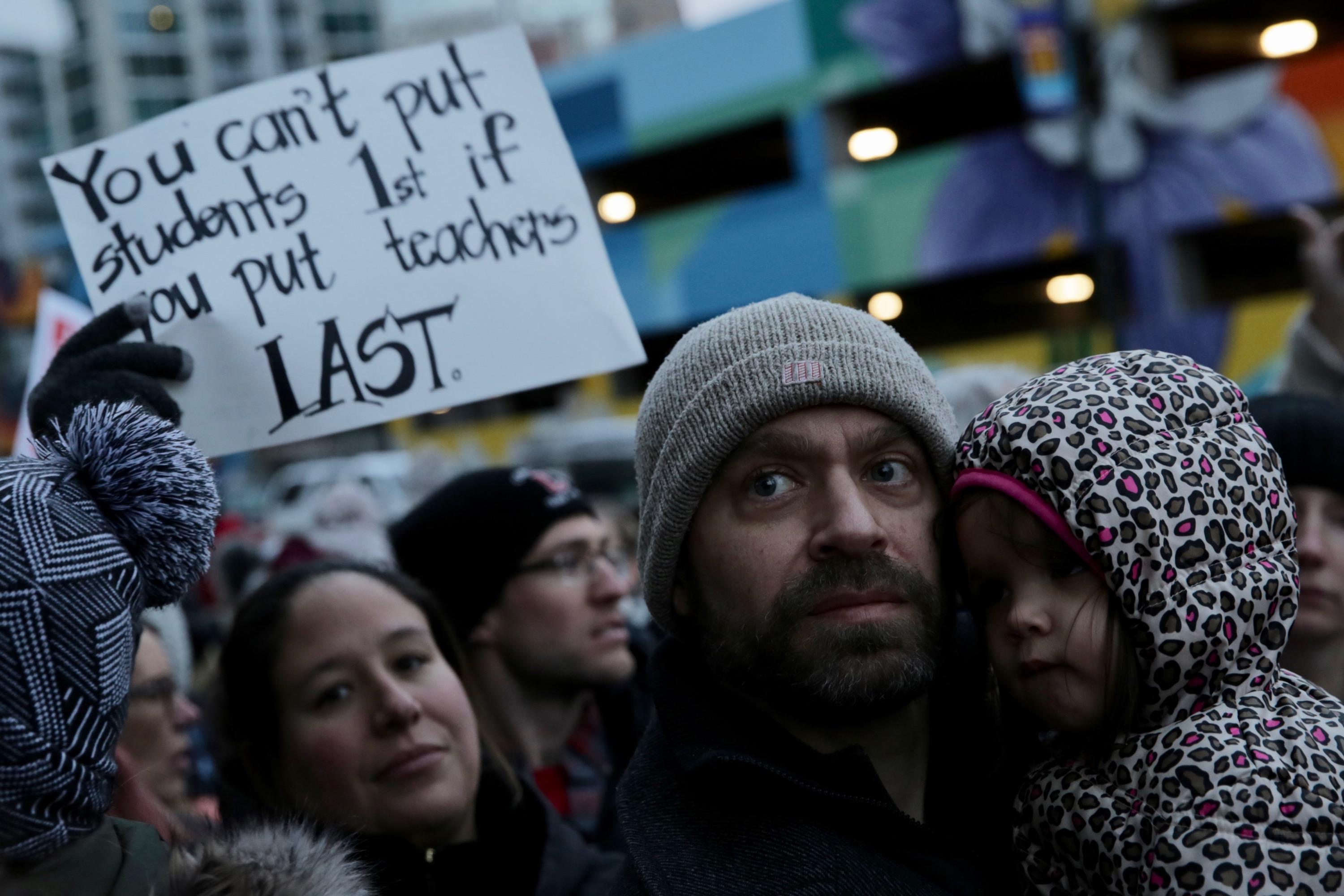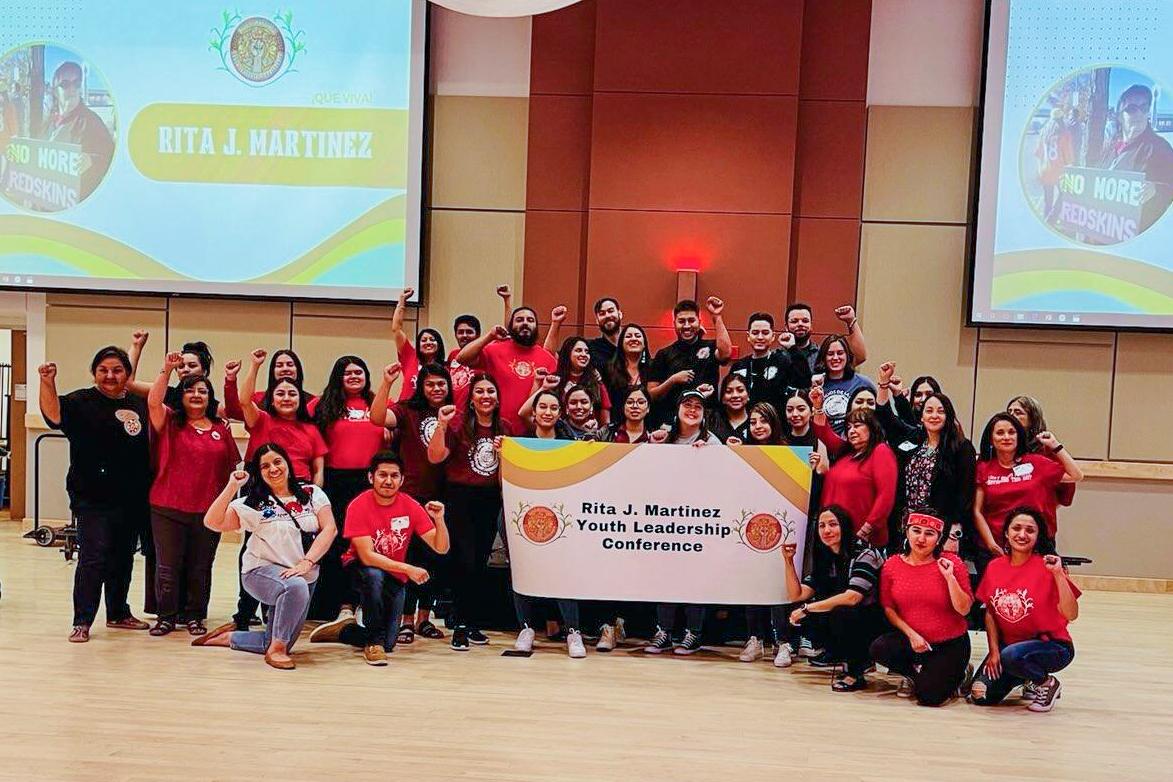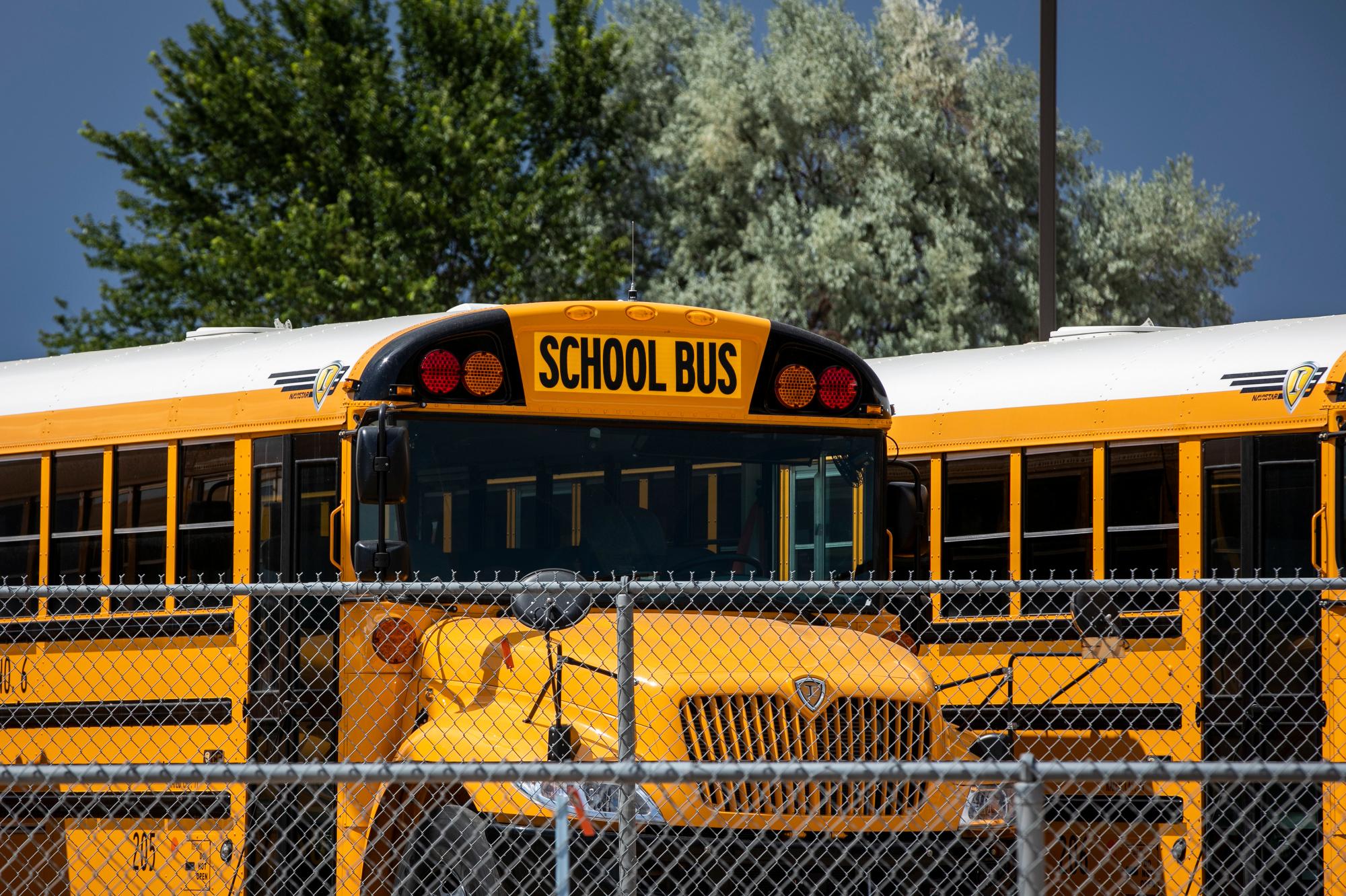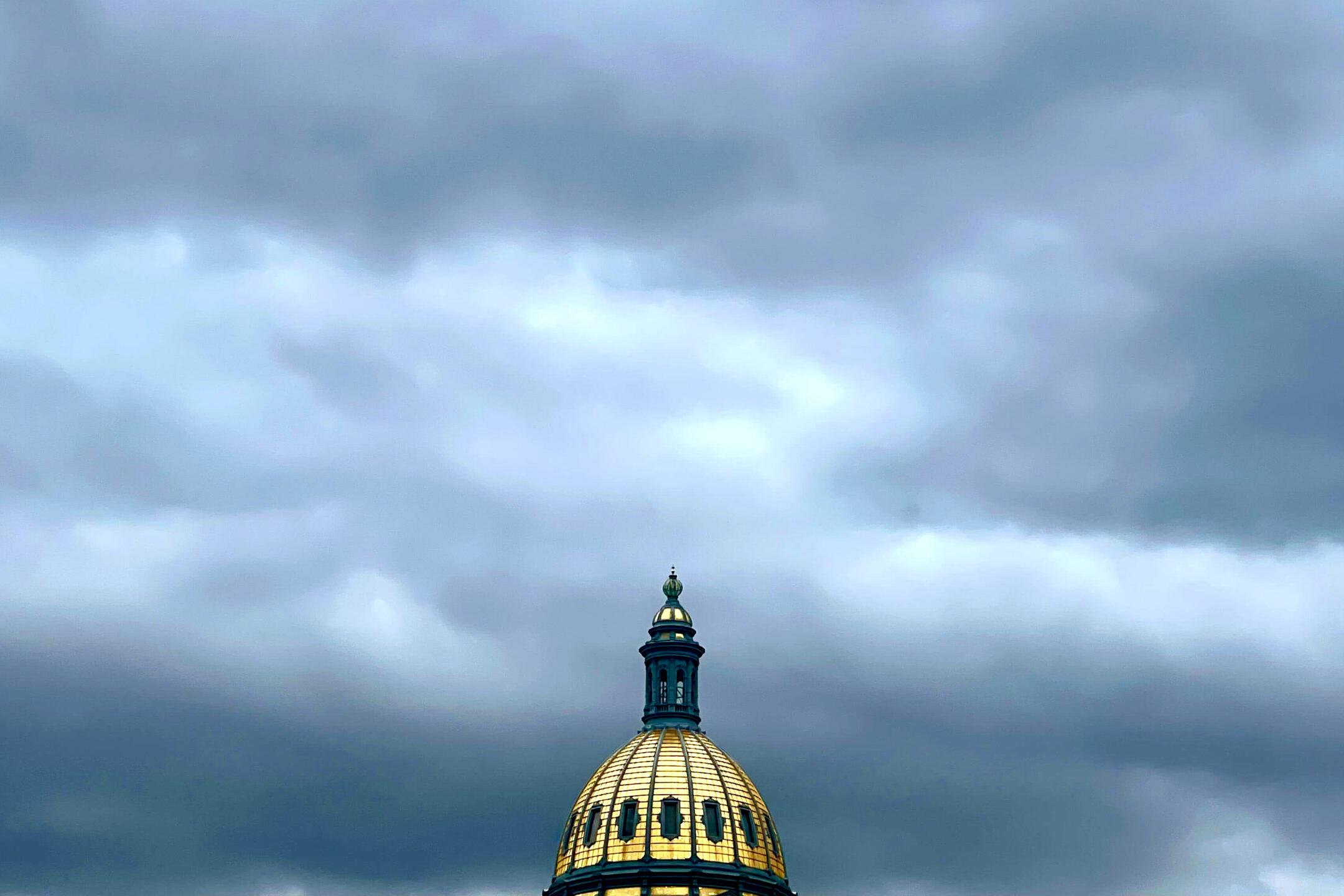

Gov. Jared Polis is making one last attempt to meet with both sides in Denver’s contentious teacher labor dispute and broker an agreement before the state decides whether it will intervene.
On Monday, Polis asked the Denver Classroom Teachers Association and Denver Public Schools to come together to review an informal analysis prepared by his budget office.
Colorado’s Department of Labor and Employment will decide whether or not to step in by Feb. 11. In the meantime the strike teachers voted for is on hold. If the state decides to intervene, it could postpone a strike for up to 180 days.
In a letter, the agency said a lack of meaningful dialogue, a fundamental disagreement over the facts and costs of competing proposals, and the reopening of negotiations last week that turned into “political theater at its worst,” all weigh heavily on the state’s decision.
In response, the teacher’s union insisted the state not get involved.
“Every day the state delays its decision on whether or not to intervene is another day our teachers are denied their right to strike. That is the only remaining tool at our disposal to fix the entire pay system that is hurting Denver students and driving down our competitiveness to attract and retain quality teachers,” union president Henry Roman said in a statement.
The district’s statement was more conciliatory. They expressed a desire to meet with the governor and thanked the state for its efforts.
“The letter lays out areas where joint work needs to be done to get to an agreement; we would like to engage in productive negotiations to discuss these,” wrote Denver Public Schools.
Bargaining talks over Denver teachers’ pay and compensation system formally ended Jan. 18 after 14 months of negotiation. Members of the union voted to approve a strike Jan. 22. Soon after, the district requested Polis and the state labor department intervene.
The letter from Department of Labor executive director Joe Barela said that many of the points of contention between the two sides are grounded in philosophical disagreements that run deeper than pay. The question as to how teacher salaries should increase and whether they should receive incentives has been a key sticking point.
“Moving negotiations forward seems highly unlikely, until both parties can get to a common starting point on financial numbers, resolve ideological divides on how to serve our highest risk children in both Title 1 schools as well as the top 30 poverty schools, and to agree on steps and lanes with guardrails in the districts pay schedule,” Barela wrote.
The union’s proposal is a salary schedule with eight “lanes,” which allows teachers to advance in pay as they gather additional college credits and degrees, advanced licenses and professional development units, or in-service training sessions.
Denver Public Schools’ proposal has six lanes and allows teachers to advance the same ways with the addition of ten years of district service.
The disagreement between the two is that the district’s proposal does not allow teachers to increase their pay through professional development units. The district is worried that “PDUs” are too easy to attain, are not rigorous enough and that teachers could rapidly accumulate the credits on the district’s dime.
Significantly, the Department of Labor states that the Governor’s Office of State Planning and Budget looked at other districts that allow teachers to advance in compensation for PDUs, and concluded that “it appears unlikely” that including PDUs would move teachers up in pay as fast as the Denver Public Schools projects.
The two sides also don’t agree on the cost of the union’s proposal. The state labor department said that the governor’s budget and planning office estimates a cost of $28.4 million in the first year, with 10 to 20 percent of teachers advancing lanes annually. All sides agree that the district’s proposal would cost $20.8 million in the first year, with 10 percent of teacher advancing.
The union and the district do agree the compensation system needs to be revamped and pay incentives reworked. But the difference between the cost of incentives remains $6.5 million, and “there are still deep philosophical disagreements on how this money is distributed,” as the labor agency writes.









